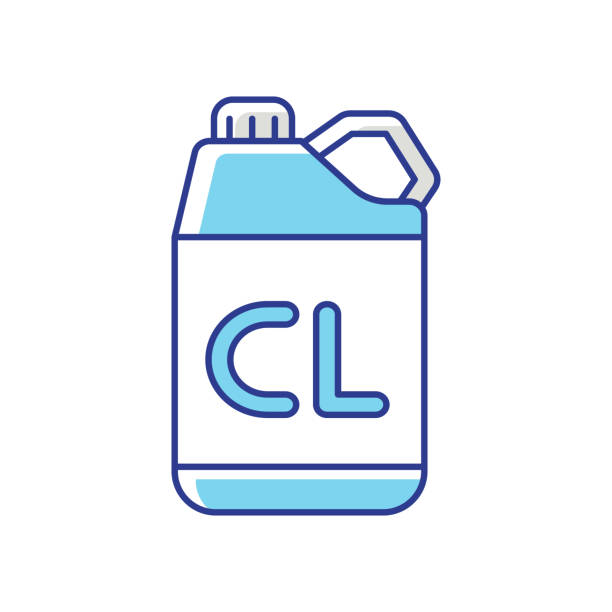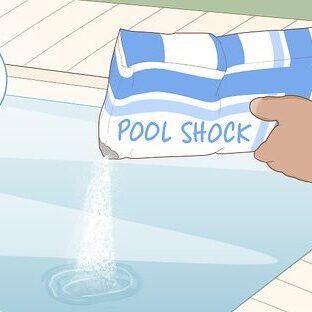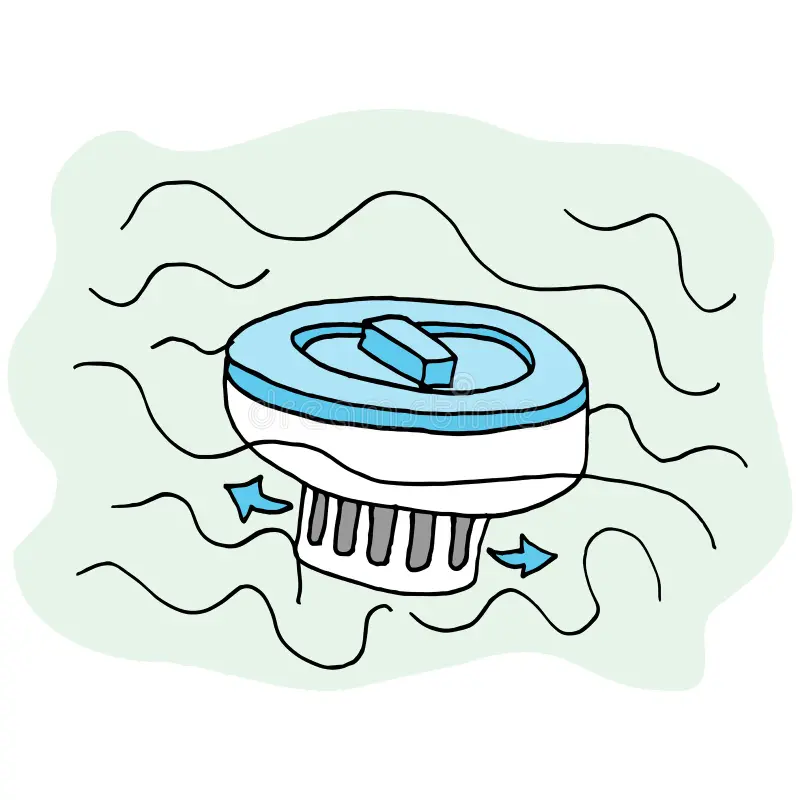Have you ever wondered why there seems to be so many different kinds of chlorine you can use for your pool? There are subtle differences in chlorine, and each option has its own pros and cons.
Liquid Chlorine

Liquid chlorine usually comes in gallon sized plastic jugs. Here are some pros, cons, and why this is our most used chlorine product.
Pros: It is easy to use. It is poured directly into the deep end of the pool while the pump is running. Because this product is already a liquid, it also works instantly to chlorinate the pool. Additionally, liquid chlorine does not have any stabilizer, so it is suitable for all pool types and will not raise stabilizer levels. Liquid chlorine does not cause stains to the floor of the pool.
Cons: This product has a short shelf life. This product is also corrosive and can stain some surfaces where it is stored. This product should be stored in a well-ventilated area. This product may also raise the pH of your pool.
At Good Neighbor Pool Care, we use a lot of liquid chlorine and we use it on almost every pool. We like that it instantly chlorinates the pool without adding other products. The pool is chlorinated when we leave! We also check pH levels with every service. If liquid chlorine affects the pH of the pool, we can balance it promptly.
Cal-hypo (powder)
Cal-hypo is a granular chlorine that usually comes in bags or tubs. Here are the pros and cons as well as when we at Good Neighbor Pool Care use this product.

Pros: Cal-hypo is a powerful shock treatment. It also has a longer shelf life and is easier to store. Cal-hypo may be easier to measure.
Cons: This product will take hours to days to work, which could be a good thing in the right circumstance. You may also need to dissolve the product before adding it to the pool or brush where it settles in the pool. All chlorine has the potential to make a pool look cloudy, but this product can appear especially cloudy in the hours or a day after application. Probably the biggest con of cal-hypo, it contains calcium and will raise the calcium levels of the pool. Much of our water is already high in calcium, so this product may contribute to hard calcium build-up around the pool.
At Good Neighbor Pool Care, we use cal-hypo when a pool needs a strong shock and when a pool is having a harder time maintaining chlorine levels. This is most often when we are trying to kill algae in a pool. Once the algae is killed, we will then transition to liquid chlorine.
Trichlor (Tablets)

Trichlor typically comes in 3-inch tablets. Here are the pros, cons, and when we use tablets.
Pros: Tablets will dissolve slowly over about a week, keeping a consistent level of chlorine in the pool.
Cons: Trichlor tablets can cause stains if they do not dissolve properly. Trichlor is also not suitable for vinyl and fiberglass pools. These tablets contain chlorine stabilizer. Pools need stabilizer to protect the chlorine from being degraded by UV, but too much can inhibit the effectiveness of the chlorine. Stabilizer levels are also not as easy to balance when they get too high. When stabilizer levels get too high, there aren’t many options to lower it aside from draining some of your pool water and diluting it. Long-term and consistent use of trichlor tablets could raise the stabilizer levels too high.
At Good Neighbor Pool Care, we use trichlor to help maintain chlorine levels between service visits for some suitable pools. When we use these tablets, we monitor the levels of stabilizer. We will stop using the trichlor tablets before stabilizer levels get too high.
In conclusion
You have several options when choosing what chlorine to use! When Good Neighbor Pool Care services your pool, we consider which product is best for your pool.